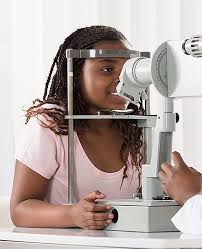The Essential Role of a Medical Assistant in Modern Healthcare Settings
The Role of a Medical Assistant in Healthcare
Medical assistants play a vital role in the healthcare industry, serving as essential members of medical teams in various healthcare settings. They are trained professionals who perform both administrative and clinical tasks to support physicians, nurses, and other healthcare providers.
Administrative Responsibilities
Medical assistants handle a range of administrative duties, including scheduling appointments, maintaining patient records, handling billing and coding, and managing communication between patients and healthcare providers. Their organizational skills and attention to detail help ensure the smooth operation of medical offices and facilities.
Clinical Duties
In addition to administrative tasks, medical assistants also assist with patient care. They may take vital signs, prepare patients for examinations, administer medications as directed by healthcare providers, collect specimens for testing, and assist with minor procedures. Medical assistants serve as a crucial link between patients and healthcare providers, offering support and comfort during medical visits.
Education and Training
Medical assistants typically complete formal training programs that cover both administrative and clinical skills. These programs may result in a certificate or diploma and can be completed in a relatively short period. Some medical assistants choose to pursue certification to demonstrate their competence in the field.
Professional Growth
As the demand for healthcare services continues to grow, so does the need for skilled medical assistants. With experience and additional training, medical assistants can advance their careers by specializing in areas such as phlebotomy, EKG testing, or office management. Some may choose to pursue further education to become licensed practical nurses or registered nurses.
Conclusion
Medical assistants play a crucial role in ensuring the efficient delivery of healthcare services. Their combination of administrative expertise and clinical skills makes them valuable members of healthcare teams. As the healthcare industry evolves, the role of medical assistants will continue to expand, offering opportunities for professional growth and development.
5 Essential Tips for Medical Assistants: Enhancing Skills and Patient Care
- Develop strong communication skills to effectively interact with patients and healthcare professionals.
- Stay organized and detail-oriented to manage patient records, appointments, and administrative tasks efficiently.
- Maintain a high level of professionalism and confidentiality when handling sensitive medical information.
- Continuously update your knowledge and skills through training programs or certifications to stay current in the field.
- Show empathy and compassion towards patients to provide them with quality care and support during their medical visits.
Develop strong communication skills to effectively interact with patients and healthcare professionals.
Developing strong communication skills is essential for medical assistants to effectively interact with both patients and healthcare professionals. Clear and empathetic communication not only helps in building trust with patients but also ensures accurate transmission of important information between healthcare team members. Medical assistants who excel in communication can provide better support to patients, address their concerns, and facilitate smooth coordination within the healthcare setting. By honing their communication skills, medical assistants can enhance the overall quality of care delivery and contribute positively to the patient experience.
Stay organized and detail-oriented to manage patient records, appointments, and administrative tasks efficiently.
To excel as a medical assistant, it is essential to stay organized and detail-oriented in managing patient records, appointments, and administrative tasks efficiently. By maintaining meticulous records and schedules, medical assistants can ensure that healthcare providers have accurate information readily available when needed. Attention to detail is crucial in this role to prevent errors and oversights that could impact patient care. Being organized and detail-oriented not only enhances the effectiveness of medical assistants but also contributes to the overall smooth operation of healthcare facilities.
Maintain a high level of professionalism and confidentiality when handling sensitive medical information.
It is essential for medical assistants to maintain a high level of professionalism and confidentiality when handling sensitive medical information. Upholding strict ethical standards and respecting patient privacy are paramount in the healthcare field. Medical assistants must ensure that patient records and personal information are kept secure and confidential at all times to build trust with patients and uphold the integrity of the healthcare profession. By adhering to these principles, medical assistants demonstrate their commitment to providing quality care while safeguarding the privacy and dignity of every individual they serve.
Continuously update your knowledge and skills through training programs or certifications to stay current in the field.
To excel as a medical assistant, it is essential to continuously update your knowledge and skills through training programs or certifications to stay current in the field. Healthcare practices and technologies are constantly evolving, making ongoing education crucial for providing high-quality patient care. By investing in your professional development, you not only enhance your expertise but also demonstrate your commitment to delivering top-notch healthcare services. Stay informed about the latest advancements in the medical field to ensure that you can adapt to changes and perform your role effectively as a valued member of the healthcare team.
Show empathy and compassion towards patients to provide them with quality care and support during their medical visits.
Showing empathy and compassion towards patients is a fundamental aspect of being a medical assistant. By demonstrating understanding and care, medical assistants can create a supportive environment that helps patients feel comfortable and valued during their medical visits. This compassionate approach not only enhances the quality of care provided but also fosters trust and rapport between patients and healthcare providers. Patients benefit greatly from the emotional support and reassurance that empathetic medical assistants offer, ultimately contributing to a positive healthcare experience for all involved.


